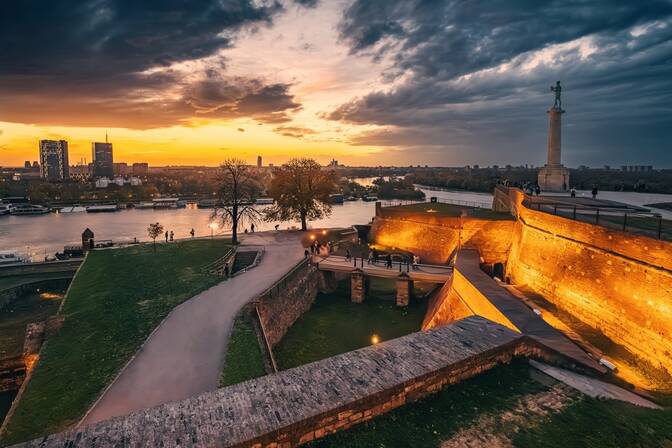Memorial Day of the Victory of Nándorfehérvár
July 22, Tuesday

Historical Background
In the mid-15th century, the Ottoman Empire was rapidly expanding into Europe. Sultan Mehmed II, who had captured Constantinople in 1453, turned his attention to Nándorfehérvár, a strategic fortress at the confluence of the Danube and Sava rivers. In July 1456, a coalition of Hungarian forces, crusaders, and local volunteers, under the leadership of John Hunyadi, successfully defended the fortress against the vastly superior Ottoman army.
The battle took place between July 4 and July 22, 1456. Despite being outnumbered, Hunyadi's forces used innovative tactics and the strong fortifications of the city to repel the siege. A key moment came when the defenders launched a surprise counterattack, breaking the Ottoman lines and forcing them to retreat. The victory was seen as a miraculous deliverance and had a profound impact on European morale.
Legacy and Commemoration
The triumph at Nándorfehérvár was so significant that Pope Callixtus III ordered church bells to be rung at noon across Christendom to celebrate the victory and to call for prayers for the defenders. This tradition of ringing the noon bell continues in many places to this day, often without people knowing its origin.
In Hungary, the Memorial Day of the Victory of Nándorfehérvár was officially established in 2011 and is observed annually on July 22. It is not a public holiday but serves as a day of national remembrance. The day is marked by:
* Commemorative ceremonies at historical sites and monuments.
* Educational programs in schools to teach about the battle and its significance.
* Church services and the ringing of bells at noon in honor of the victory.
Significance Today
The memorial day serves as a reminder of Hungary’s historical role in defending Europe from Ottoman expansion and celebrates the unity and courage of those who fought in the battle. It also honors the legacy of John Hunyadi, who is regarded as a national hero in Hungary and other parts of Central Europe. The day fosters national pride and historical awareness, connecting modern Hungarians with a pivotal moment in their past.
